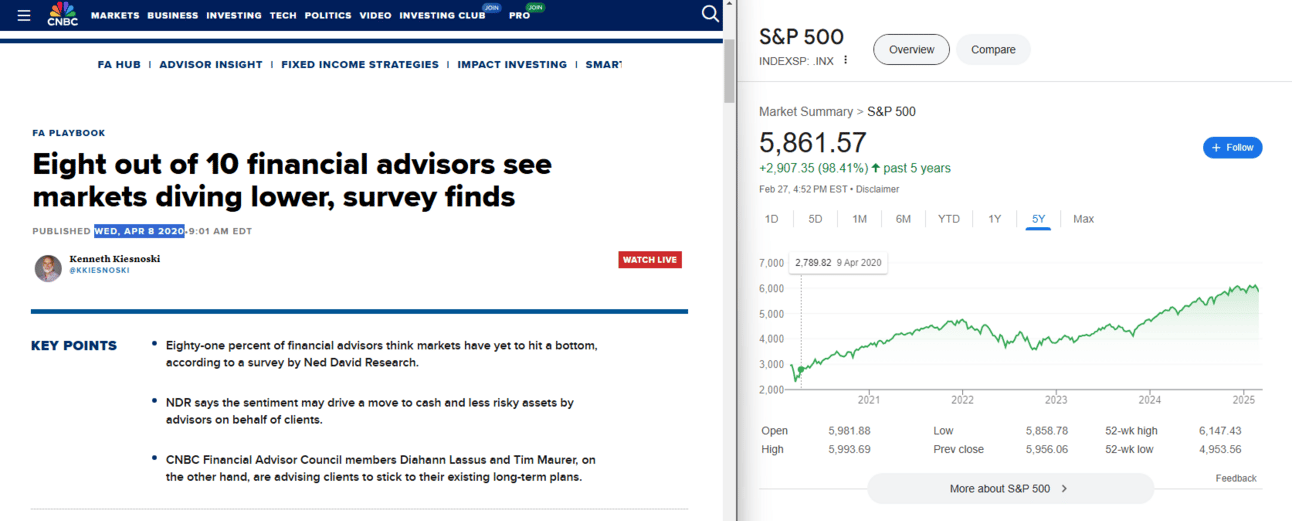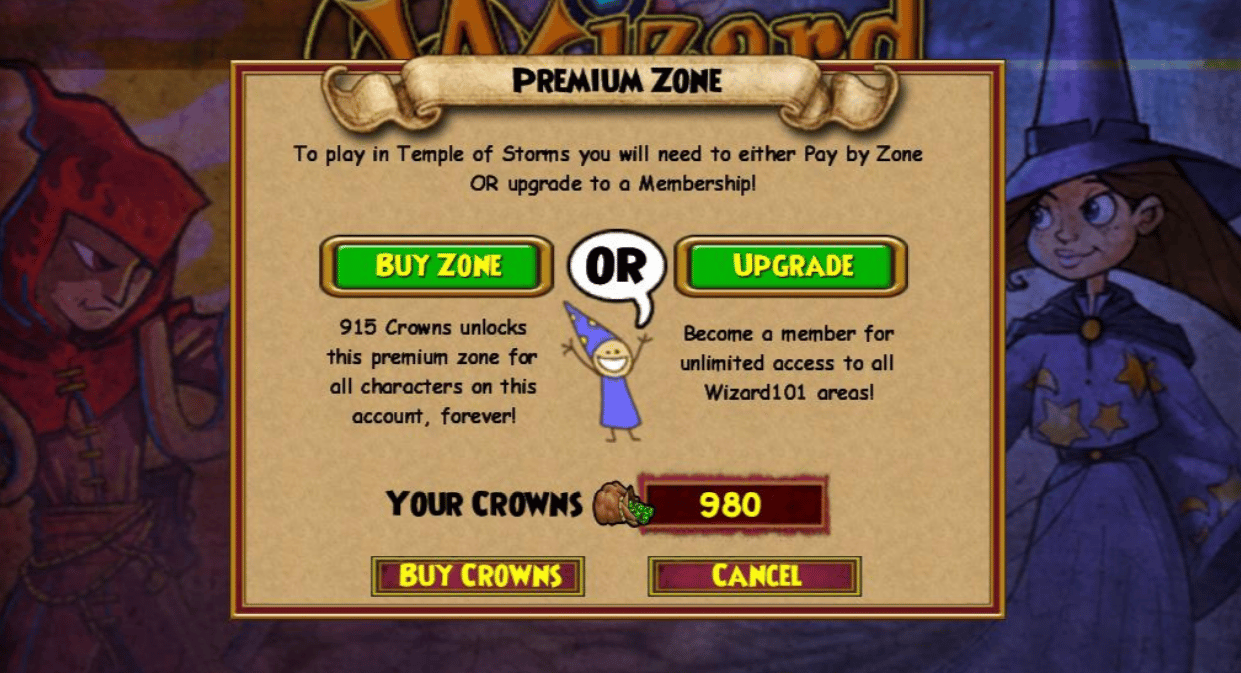If you’ve completed Level 0 (You’ve got a handle on your debt) and Level 1 (You have a budget and an emergency fund), then congratulations!
You’re already ahead of most people in your financial journey.
But it’s around this stage of your adventure that you will encounter a very deceptive trap…
Financial advisors.
WARNING: If you (or someone close to you) are a financial advisor, you might be offended by this article. Sorry!
Today, we’ll cover:
What are Financial Advisors?
Common Fee Structures
Understanding their “1% Fee”
Alternative Options
Why you should avoid Financial Advisors like the plague…
And as always, you can watch this article on YouTube:
Let’s dive in.
Wall Street loads up on surprising $2.1tn asset class
Bank of America. UBS. JP Morgan. They’re all building (or have already built) massive investments in one $2.1tn asset class—and it’s not what you think. It’s not private equity or real estate, but fine art. Why?
In partnership with Masterworks, data from Citi shows it’s a potent diversifier with low correlation, and certain segments have even outpaced traditional investments. Take blue-chip contemporary art, which has outpaced the S&P 500 by 64% (1995-2023).
Masterworks knows the power of art investing, with their platform giving 900k+ users the opportunity to invest in this asset class as part of their overall portfolio strategy. In fact, from their 23 exits so far, Masterworks investors have realized representative annualized net returns like +17.6%, +17.8%, and +21.5%* (among assets held for longer than one year).
With so many users, Masterworks offerings can sell out quickly.
Past performance not indicative of future returns. Investing Involves Risk. See Important Disclosures at masterworks.com/cd.
What are Financial Advisors?
A financial advisor is someone who helps you manage your money.
They typically work at banks or other similar financial institutions, and you will likely encounter them when you open up a bank account or credit card.
Their pitch is simple: You provide your money to the financial advisor, and they will manage your money for you. You “don’t have to stress” about your money, you don’t have to follow financial news, and you can rest assured that your money is in the hands of a “certified professional”.

Look at how trustworthy they are!
But there’s a catch.
They charge a fee.
And the fee will sound very small… when in reality, it isn’t.
Common Fee Structures (Monetization Models)
Financial advisors don’t work for free. And because of this, their fees can eat away at your wealth like a slow poison damage-over-time spell. Here’s what to watch out for:
Percentage-Based Fees – Many advisors charge 1% of your total portfolio every year. That may sound small, but over decades, it can cost you hundreds of thousands in lost growth.*
Commissions on Products – Some advisors earn commissions by selling you expensive funds or insurance products that benefit them more than you.
Flat Fees vs. Hourly Advice – The best advisors charge a one-time or hourly fee instead of skimming a percentage off your wealth forever. However, it will be more difficult to find (and work with) these kinds of advisors when you’re first starting out with investing.

Financial advisors are pay-to-win games. They are happy to take your money.
Think of the different monetization models in video games. There are many models (such as pay-to-win games) that feel unfair. And once people find out that the video game is pay-to-win, they are rightfully upset.
Financial advisors are playing a pay-to-win game, at your expense.\
Let me explain.
We covered the hidden danger of percentage-based fees in our 5 Levels of Investing article, but it’s so important, that it’s worth re-emphasizing.
A 1% fee might not seem like much, but over 30 years, it can reduce your total investment returns by 25% or more.
Let’s look at two examples:
Adam invests $1,000 every month into the S&P500 (10% return) for 40 years. But he has a financial advisor who takes 1% every year.

Beth also invests $1,000 every month into the S&P500 (10% return) for 40 years. But she manages her investments herself, buying index ETFs through her brokerage’s mobile app.

Adam retires with $4 million, and Beth retires with $5.3 million.
That 1% fee, compounded over 40 years, results in a $1.3 million dollar difference.
Avoiding a 1% fee means that Beth has 31% more wealth at retirement.
Or to put it really simply:
Adam paid his financial advisor $1.3 million for the same results as Beth.
So when a financial advisors tells you that they ONLY take a 1% fee, your alarm bells should start ringing.
Questions to Ask You Financial Advisor
If you still want a financial advisor, or you already have one, that’s fine.
Firstly, understand how their fees works as mentioned above. Then, ask them the following questions:
❓ “Are you a fiduciary?” (If yes, then they must legally must act in your best interest)
❓ “How are you paid?” (Avoid those who earn commissions on selling products)
❓ “Can you show me a breakdown of all fees I’ll pay?” (Assess how transparent they are here. Do they show you how their fees compound over time?)
❓ “How have your recommended investments performed compared to index funds?” (Ask to see real evidence of performance)
If they dodge these questions or push expensive products, run the other way.
The final question is extremely important, because in the Adam vs. Beth example, I assumed that the financial advisor performed just as well as the S&P 500.
When in reality, many financial advisors under-perform the S&P 500…

Shot, chaser…
If you had listened to 80% of financial advisors in April 2020, you would’ve missed out on one of the greatest stock market bull-runs in history.
While you might think you’re getting professional help with a financial advisor, the reality is that they are human beings, just like you.
And they are just as prone to being fearful when the market is down, and being greedy when the markets are up.
So you might end up even worse than Adam. Do your own research!
Self-Directed Investing (Free-to-Play Games)
Not all financial advisors are bad, of course. There are surely plenty of people who are very happy with their financial advisors performance.
But is a financial advisor right for you?
Ask yourself:
✅ Do I feel comfortable completely trusting someone else with my financial wellbeing?
✅ Am I okay with giving away >30% of my wealth over the course of my life?
✅ Am I truly unwilling to put in the effort to learn about the fundamentals of investing and take control of my own finances?
If you answered YES to all three of those questions, then by all means, get yourself a financial advisor.

The worst part? The pay-to-win games aren’t even that fun (financial advisors often underperform the market)!
If you answered NO to those questions, then you’ll want to look at the alternative:
Self-Directed (DIY) Investing.
And spoiler alert… if you’re reading this article, then you already are more willing than the average person to learn about personal finance. So I’m willing to bet that you belong in the 2nd category.
If financial advisors are a pay-to-win game, then self-directed investing is a free-to-play game.
DIY Investing Pros & Cons (Open World Game)
And it’s not just any free-to-play game… self-directed investing is an open world video game.

Self-directed investing can be daunting at first, but the freedom and autonomy is unparalleled - just like an open-world game.
Yes, open world games can be daunting. You can get lost, there are many things to learn, and there are an infinite number of options available to you… but it’s also one of the most rewarding experiences you can have.
Here are the pros and cons of self-directed investing:
Pros:
✔️ Lower costs, keeping A LOT more of your returns
✔️ Full control over investment choices - you are in the driver’s seat
✔️ No conflicts of interest
Cons:
❌ Requires time to learn the basics (which you’re already doing by subscribing to Wealth Potion!)
❌ No professional guidance during market crashes (a topic we will continue to cover in depth so that you are prepared)
And if the thought of selecting investments gives you anxiety, you can do exactly what Beth did in the example above, and buy an Index ETF - something we will cover in depth in Level 4, so stay tuned.
The Next Boss: Taxes
Alright, now that you are aware of the very real and significant risks of having a financial advisor, we can move on to the next boss.
I know you’re probably antsy and keen to start investing…
And I promise we’re almost there!
But there’s one more boss we need to tackle before we start investing our money.

Congratulations! Now that your investments are making money, you need to pay taxes.
Taxes.
On a percentage basis, taxes have the greatest potential to destroy your wealth.
Luckily, governments have been generous enough (🙄🙄) to provide use with a mechanism we can use to protect some of our investments from taxes.
But you need to know how to use them, which is exactly what we’ll cover in Level 3.
See you there.
To your prosperity,
Brandon @ Wealth Potion
Build in Public Update

I’m back from my beach vacation feeling refreshed, and with a renewed outlook on my business.
On the beach, I thought a lot about work/life balance.
Back when I worked in tech, I used to look forward to my vacations. It would be something that me and my fiancée would take joy in planning, and having a vacation on our calendar was something that gave us extra motivation at work.
“Just a few more weeks until we’re at the beach!”
In my 10 year career in tech, work/life balance was a very popular topic. Tech startups in particular loved to position their workplace as highly valuing your work/life balance, perhaps because startups are generally thought to be very demanding.
Now that my fiancée and I are both self-employed, we… don’t look forward to vacations as much.
But it’s a good thing.
Because I’ve realized that “work/life balance” is a mirage.
Work and life aren’t enemies. They’re supposed to be integrated, not balanced.
It’s not healthy to dread your work so much that you look forward to beach-long vacations. Of course, some excitement is totally normal, but it shouldn’t be an extreme high and extreme low.
Here’s my litmus test:
Toward the end of your vacation, do you feel depressed because you’re leaving soon?
Or are you somewhat excited to get back to work and return home?
If you’re in the first category, perhaps it’s time to reflect on your “work/life balance”, and if your work is not the work you should be doing.
Some food for thought…
Let me know if this is a topic you’d like me to dive into more… I’m thinking of doing a deeper dive into this — to understand the origins of “work/life balance”, our modern work style, etc.

